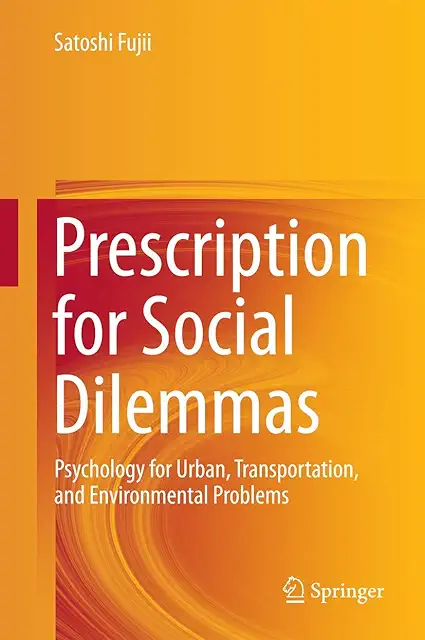Introduction of Fujii laboratory
Travel Behavior Analysis
Pragmatic Social Science Studies for Solving Problems in Urban Planning, Travel Behavior and National Resilience
Social science was originally a field of integrative and pragmatic studies to address various social issues that arose during modernization. However, over 200 years since the dawn of the modern age, the”siloing” (deep specialization) of social sciences has made applying those findings to actual problem-solving difficult. In the real world, social problems exist as multidimensional phenomena and are not split to fit a researcher’s specialty. Our lab has been working on pragmatic social science research to address problems in urban planning, travel behavior management, and building national resilience based on the understanding of the multidimensional nature of humans and society.
Research theme
Comprehensive Approach to Resolve ‘Social Dilemmas’ in Urban &Transporta-tion Contexts
Various social issues such as environmental pollution, deterioration of urban landscape, traffic congestion, and over-tourism are caused by ‘social dilemmas’ where individual interests like seeking convenience or personal preferences conflict with collective societal benefits. Our laboratory investigates the social and psychological mechanisms behind these problems, as well as the structural challenges within transportation networks, urban systems, and institutional frameworks, aiming to overcome these social dilemmas while exploring more desirable urban and transportation systems. Specifically, we work on establishing attitude and behavior change methods based on social psychology, modeling transportation and tourism demand using crowdsourced data, and proposing effective use of shared mobility and micro-mobility solutions. Our methodology incorporates diverse techniques beyond statistical data analysis and mathematical modelling, including fieldwork, case studies, and institutional analysis to approach these issues comprehensively.

regional mobility management
Social Psychological Research on the Mindset Necessary for the Maintenance and Development of Civil Society
In tackling problems at the urban, regional, national, and even global levels, people’s ‘sound mindsets’ is often indispensable. Regardless of well-established legal systems, sufficient funding, or new technologies, desirable outcomes may not be achieved without citizen’s morality, ethics, problem-solving vitality, and a calm sense of balance. Of course, defining a good mentality, attitude, or sense is not an easy task, nor are the ways to cultivate these mindsets straightforward. Thus, our research focuses on fundamental analyses, using empirical data, to examine whether factors such as regional attachment or religious sentiments can foster problem-solving in society and to understand the psychological mechanisms underlying issues such as political apathy, excessive pursuit of political correctness, and the naive acceptance of conspiracy theories.

maintaining traditional community
and local landscape
Macroeconomic Policies and Land Planning Strategies for Enhancing ‘National Resilience’
Enjoying satisfying cultural lives in urban and regional societies largely depends on the overall economic growth and crisis management capabilities of our nation. Especially in the current context, securing “National Resilience” is an urgent task in preparation for large-scale natural disasters, financial crises, geopolitical conflicts, and the declining birthrate and aging population. For this purpose, this lab focuses on disaster prevention, macroeconomic policies to enhance growth measures to mitigate the “over-concentration in Tokyo” for balanced land use, and the integration of land planning and defense strategy. We are also actively working on proposing policy suggestions to national and local governments and sharing the key findings through journalism and public symposiums.

damage from an earthquake and
the recovering process

